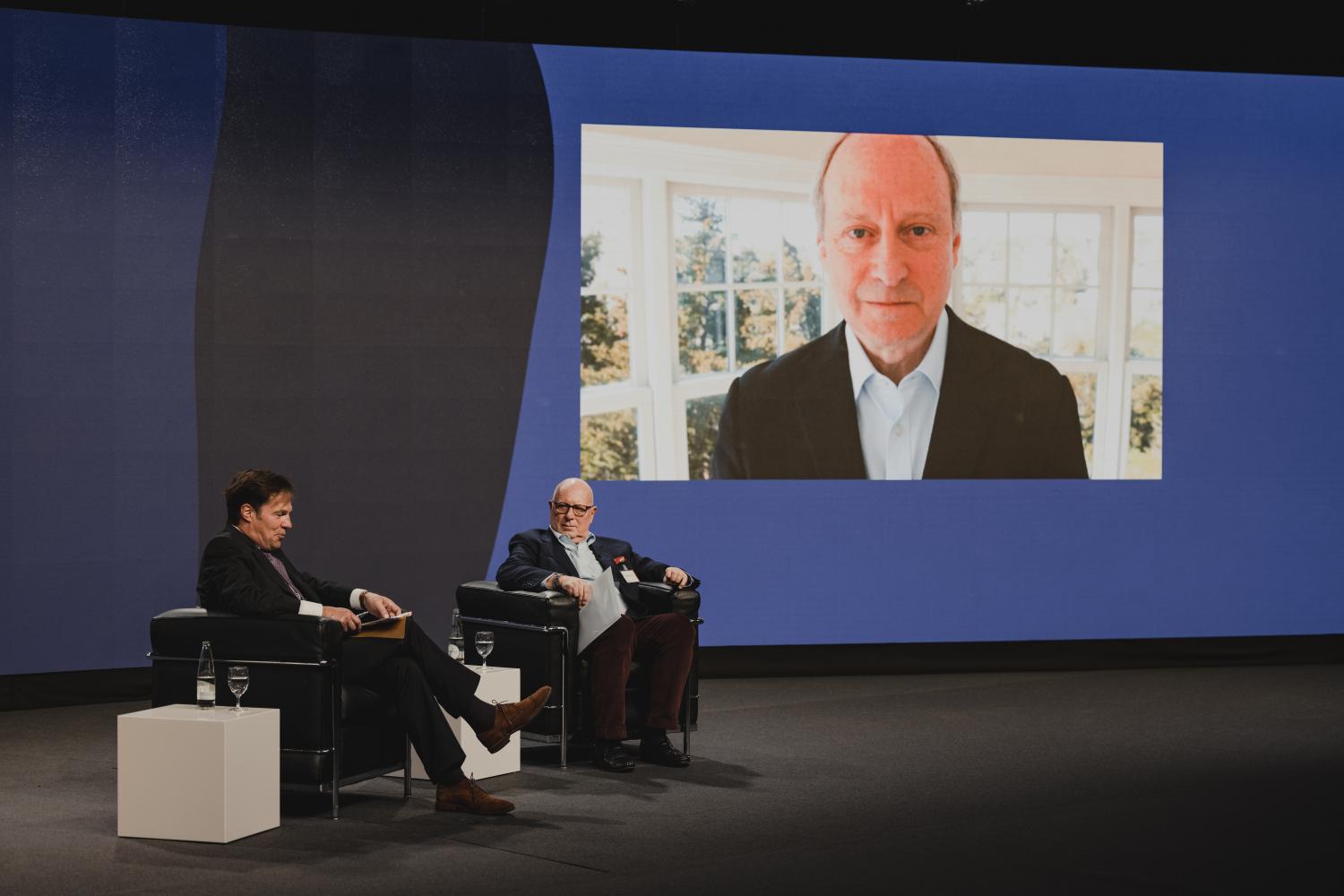10 Break-Out Sessions
[timetable id="9" column_title="0" filter_visible="1" filter_multiple="1" event_box_time="0"]
[timetable id="9" column_title="0" filter_visible="1" filter_multiple="1" event_box_time="0"]


Trust is an important indicator of political legitimacy, and it is vital to ensure a healthy and functioning democracy. But we must work to preserve it. This was the overwhelming consensus reached by speakers and participants at the 50th St. Gallen Symposium when it came to addressing an era of contested trust.
Evidently, 2020 was a tumultuous year. From the onset of the pandemic, we saw deep levels of government intervention, revealing many cracks in the system. Harvard University political scientist Michael Sandel provided an excellent analysis of just why trust in modern democracies has faltered.
Processor Sandel certainly wasted no time in getting to the crux of the issue. “We have embraced a narrow technocratic conception of the common good which has narrowed the civic project,” he said. Sanders directly addressed the decades of neoliberal globalisation and free market policies which have undermined public trust in governing elites and their ability to serve the interests of ordinary working people today.
He argues that liberalisation — and specifically deregulation of the labour market — has deepened the divide between the ‘winners’ and ‘losers’ of globalisation. This divisiveness, he argues, has “poisoned our politics” and “impoverished public discourse.” “The common good is currently understood in economic terms,” he said. “It is less about solidarity or deepening the bonds of citizenship than it is about satisfying consumer preferences as measured by GDP.”
Moreover, technocratic elites have created such deep polarisation that many citizens have turned to hyper-nationalist figures as a protest against these elites, driving voters towards supporting populist demagogues on the far right and left. It has also mobilised anti-globalisation sentiment as manifested by Brexit and the election of Trump.
What is worse, is that according to Sandel, citizens have become mistrustful of one another, and the break-down of community ties has destroyed what holds democracies together. This has had severe consequences for civic dialogue. “When passion enters the equation, we have shouting matches, we shout past each other without really listening,” he argued.
Governing well means more than just technocratic expertise. “Successful governing requires practical wisdom and judgement, including the ability to deliberate with one’s fellow citizens about justice and the common good, and identify with people from all walks of life,” he said.
When all voices in society are heard equally, we can strengthen community ties and make people feel integrated and empowered. It’s no easy task. But ultimately, as Nestlé CEO Mark Schneider, pointed out during the symposium, “there is no natural road to democracy, unless you work for it. Democracies don’t stay successful and vibrant unless you work to maintain them.”